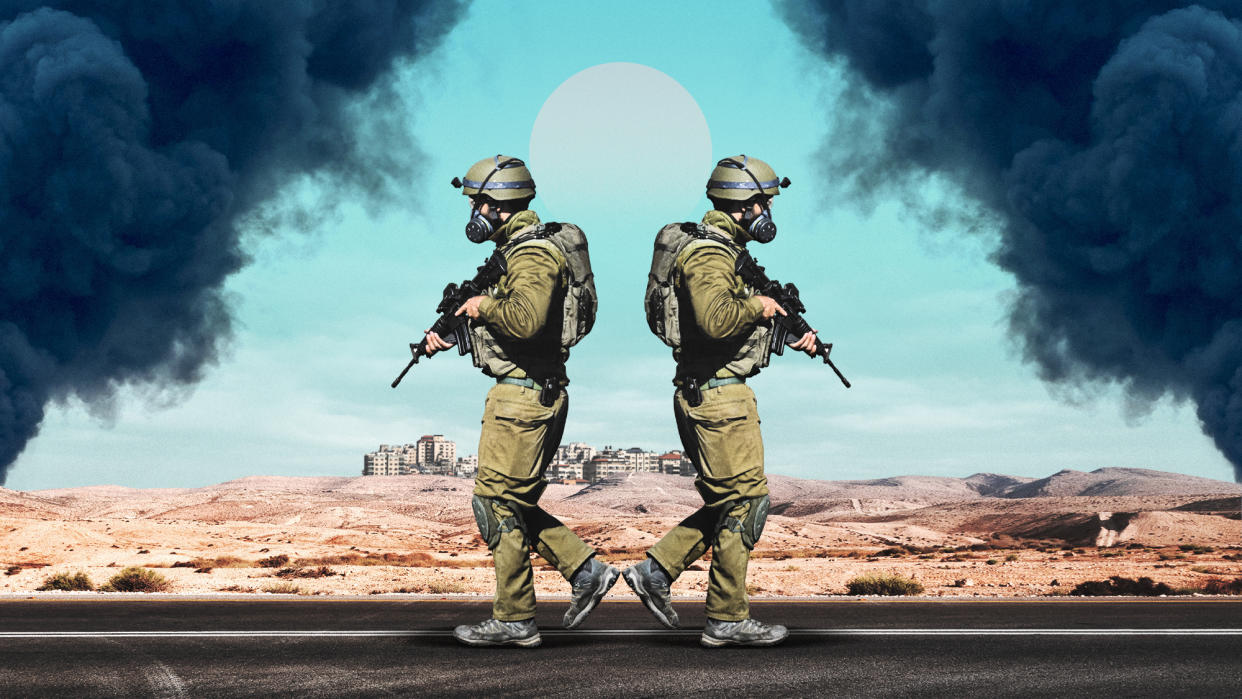Will Israel face fighting on a second front?

Fears of a broader regional conflict in the Middle East intensified on Sunday as Israel's border with Lebanon saw its worst violence since 2006.
Hezbollah militants fired rockets and an anti-tank missile into the north of Israel, which responded with air strikes and shelling.
As Israel prepares for an expected ground invasion of Gaza, its national security adviser Tzachi Hanegbi warned Hezbollah not to start a war on a second front, threatening the "destruction of Lebanon" if it did.
What did the papers say?
Some Israeli "hardliners" may feel the time is right to deliver a "decisive blow" against Hezbollah while the West is "fully behind them" in the wake of the Hamas attacks, said Politico.
But going to war with Hezbollah is a "very different prospect than going to war with Hamas", it added, because Hezbollah is a "far larger and more capable military force". The Hamas rocket attacks would be a "light summer shower compared to the deluge Hezbollah could bring down on towns and cities", forcing the country into "lockdown".
Hezbollah has its own reasons to avoid full conflict, said Politico, because the end result would be a "grave weakening" of its forces, which would "erode its deterrence value to Iran".
But Iran's foreign minister, Hossein Amirabdollahian, said last week that there was "every possibility" of a second front if Israel's blockade of Gaza continued. He spoke of "game-changing" plans to capture the Galilee and northern Israel.
He also warned that the group could destroy Tel Aviv "tower for tower" and that Israel's nuclear reactor is an easier target than Iran's nuclear installations are for the West.
"Hyperbole perhaps", said The Economist, but "by allowing Hezbollah to open a second front with Israel", Iran would hope to "kill off the Abraham accords between Israel and some Arab countries" and spark an "anti-Western surge across the Middle East".
On the other hand, said the magazine, "many believe that Iran wants to preserve Hezbollah's rocket arsenal in order to deter an attack on Iran's nuclear programme". China and the US also remain a "source of restraint on Iran".
A "conflagration" on the Lebanese-Israeli border is "unlikely", agreed Imad K. Harb in an article for Arab Center Washington DC, because "an Israel that is busy in Gaza" is unlikely to want to be "distracted" by a war with Hezbollah that "may not be a swift campaign and may not reap the desired results".
There is only a "remote" chance that Hezbollah would want a war with Israel, he argued, because it would "most assuredly end with the destruction of whatever still works of Lebanon's infrastructure". Also, Hezbollah can "no longer count on" the endorsement of "large and important political factions in Lebanon" and the country "cannot practically expect" to receive financial support from Arab countries for rebuilding.
But there remains a risk of escalation due to simple "misunderstanding" at the northern border, Tamir Hayman, a former head of Israeli intelligence, told Foreign Policy. Hezbollah has a "false sense of self-confidence" that can "lead them into a miscalculation" by "assuming that action by them will be interpreted by us as minor, while we will interpret it as major".
What next?
The Israeli defence ministry has announced that it will evacuate residents who live within two kilometres of the Lebanese border amid growing concerns that Hezbollah will "enter the fray", said The Telegraph.
All eyes are on Gaza because, "as the ground offensive looms", analysts fear the move could be the "red line" that prompts Hezbollah to "fully enter the conflict" and open the war on another front.
The ramifications of this could be profound. "Will there be world war three?" asked Niall Ferguson in The Sunday Times. If Israel "finds it cannot contend with a three-front war", with the West Bank joining Gaza and Lebanon, and then turns to the US for military help against Iran, we will have "reached one of history's hinges", he said, and "the future of the world will turn on it."

